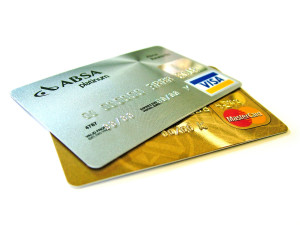Pre-authorized payment (PAP) seems like a convenient way to pay your bills. With PAP, you can “set it and forget it.” The money is automatically deducted from your bank account each month like clockwork. But PAP isn’t without its risks. The biggest risk is over-billing. Let’s take a look at the pros and cons of PAP to see if the convenience is worth the risk.
Advantages
Convenience
With the price of stamps jumping 35 cents last year, there’s more even more incentive to switch to PAP. Not only will you save money, you’ll save time. You’ll have one less thing on your monthly to-do list – you won’t need to worry about visiting the Canada Post box anymore.
Reward Points
PAP is a great way to earn credit card reward points. Credit cards like the MBNA Smart Cash MasterCard® Credit Card offer 1 per cent cashback on your regular bill payments. By switching a few of your bill payments to your credit card, you can start racking up some serious reward points. For example, if you pay $1,200 a year in home insurance premiums, you’ll earn an extra $12 just by using your credit card. If you switched all your bill payments to your credit card, imagine how much more you reward points you could earn!
Always on Time
With how hectic everyone’s lives are these days, it’s easy for a bill payment can slip your mind or get lost on your living room table. By paying your bill late, not only do you face a penalty charge, your credit score could suffer. If you want to own a home one day, maintaining a decent credit score is crucial.
When you use PAP, your bill payments always paid on time. You won’t have the stress of worrying if your bill payments arrive on time or get lost in the mail.
Disadvantages
Billing Errors
Many people are hesitant to switch to PAP with good reason. There are all sorts of customer horror stories about customers being overcharged. A quick Google search brought up many complaints from Bell.
For bills like cable and Internet that generally stay the same each month, there’s a lot less risk of switching to PAP than for bills like your mobile phone, which can be hit with extra charges. That being said, it’s still important to keep a close eye on your bills and your bank account. For example, I review my Internet bill each month to make sure it’s the same as the previous month and I’m not being charged for over usage.
Bank or Credit Card?
Should you pay your bills through your bank or with your credit card? If you can I would suggest paying by credit card. Not only will you earn reward points, you’re better protected if you’re over-billed. There’s a lot more recourse through with your credit card than your bank. Your credit card company can do a chargeback to recover funds. However, once the money is gone from your bank account, it’s hard to get it back. You might just be offered a credit instead of a refund.
Online Bill Payment
If you’re not comfortable with PAP, you should consider paying your bills online. With online billing you get the best of both worlds: the convenience of PAP, without the risk of over-billing. With online billing, the money isn’t automatically debited from your bank account. Instead you’re able to take the time to review your bill for any errors before you make payment. Although online billing has one more step than PAP, it’s a lot better than fighting with your service provider to get your money back when you’re overcharged.
Do you use pre-authorized payments? Have you ever been over-charged?
Sean Cooper is the bestselling author of the book, Burn Your Mortgage: The Simple, Powerful Path to Financial Freedom for Canadians, available now on Amazon and at Chapters, Indigo and major bookstores, and as an Audiobook on Amazon, Audible and iTunes.

I’ve had nearly everything automated for years and never had an overbilling issue. While overbilling is certainly possible, I feel like it’s generally overstated in the personal finance community as a reason for not automating your bills. It seems to me that overbilling follows the same basic scenario, whether your bill payments are automated or not. It is still a pain, and you still have to take care of the issue. If the bill is automated on a credit card, you’ve got roughly 30 days to get it straightened out before the credit card bill is due. If it’s not automated, you’ve still got about 30 days to get it straightened out before they start saying the bill is late and assessing late fees. So to me, it doesn’t seem much different.